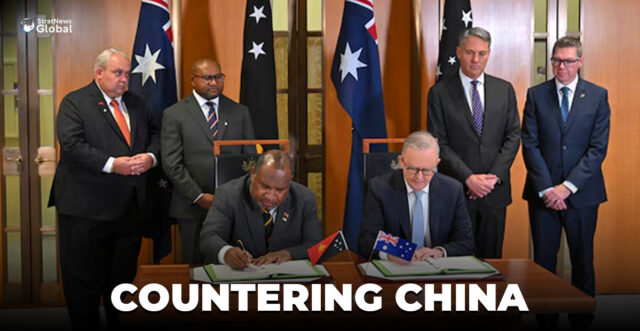Australia has entered a new defence pact with Papua New Guinea—the first in over seven decades—as Canberra moves to curb China’s growing security influence in the Pacific.
Under the Pukpuk defence treaty, which is the first signed by Papua New Guinea, Australia and its northern neighbour are obliged to come to each other’s aid if attacked.
“This is a historic agreement,” Australian Prime Minister Anthony Albanese told the press in Canberra. “By continuing to build our security relationships in the region, we safeguard our own security.”
The treaty allows as many as 10,000 Papua New Guineans to serve with the Australian Defence Force, under dual arrangements.
Albanese said both nations have agreed “not to undertake any activities or enter into any agreements that would compromise the implementation of this Treaty.”
“This Treaty was not conceived out of geopolitics or any other reason. But out of geography, history, and the enduring reality of our shared neighbourhood,” Papua New Guinea Prime Minister James Marape told the press.
The Papua New Guinea cabinet approved the Pukpuk treaty, which means crocodile, last week.
“We still retain our relationship with China and other nations,” Marape added.
Countering Chinese Influence
China has considerably deepened its trade relations with Pacific Island nations in recent years and is now working to establish diplomatic and security footholds throughout the region.
In response, Australia and its Western partners, notably the United States, have intensified efforts to push back against Beijing’s expanding influence.
In 2022, China concluded a security pact with the Solomon Islands, resulting in the deployment of Chinese police officers across the country. The following year, another policing agreement was reached, further entrenching Beijing’s presence.
As a countermeasure, Canberra announced in December a commitment of A$190 million ($126 million) to bolster the Solomon Islands’ police force and create a new police training facility. A similar arrangement has been established with Tuvalu.
Additionally, in August, Australia signed a $328 million security and economic partnership with Vanuatu, which includes the construction of two data centres, enhanced security cooperation, and support for addressing climate change impacts.
(With inputs from Reuters)





